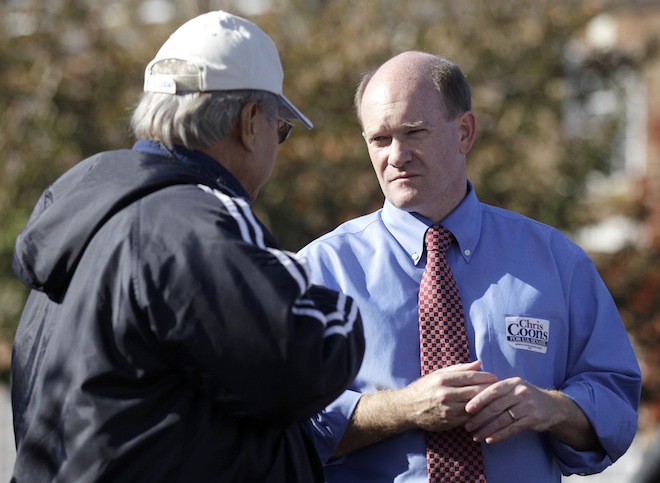An effort by Democrats to fix a glitch under Obamacare that harms small churches is widely expected to be blocked by Republicans, in what would be the latest example of GOP efforts to undermine President Obama’s signature legislative achievement by refusing to fix technical problems encountered during implementation.
The problem is that under the law clergy and church employees at smaller churches cannot apply their Obamacare subsidies toward the premiums for church insurance plans because those plans do not qualify. That could force clergy and staff to leave their church insurance plans and use the Obamacare exchanges instead, threatening to rob church insurance plans of the participants they need to remain viable.
Legislation by Sens. Mark Pryor (D-AR) and Chris Coons (D-DE) would fix this problem by allowing Obamacare premium subsidies to be applied toward church plans that meet coverage requirements. It would also deem qualified church plans as satisfying the law’s coverage mandates.
The United Methodist Church is urging lawmakers to support the bill, fearful that it may have to drop coverage under the status quo and let employees buy insurance on their own.
“Absent this amendment it would be difficult for some churches to function as they are now,” said Tim Jost, a professor of health law at Washington and Lee University and expert on the Affordable Care Act, which he supports.
Democrats say Republicans are determined to block a legislative fix, as they have for other Obamacare glitches, and want to keep pushing to repeal the law entirely. A political upside for Republicans is that letting the key parts of the law take effect next year with the church glitch aids their efforts to sabotage the law’s implementation.
“We’re not expecting it to get a vote — at least not anytime soon,” said Coons spokesman Ian Koski. “The climate is such right now that Republicans would rather repeal the law than fix it. They’re more interested in leaving this loophole open as part of their strategy to undermine the Affordable Care Act. They can go out there now and say the Affordable Care Act is bad for churches instead of working with us to fix the problem.”
Koski said it’s “not a far leap” to conclude that Republicans also oppose the bill because one of its lead sponsors is Pryor, a vulnerable incumbent and prime GOP target for 2014.
A request for comment to a senior Republican aide was not immediately returned.
“This is one of those situations where if you had a functional Congress, they’d be able to enact a fix,” Jost said. “But we don’t have a functional Congress so that’s not likely to happen.”










